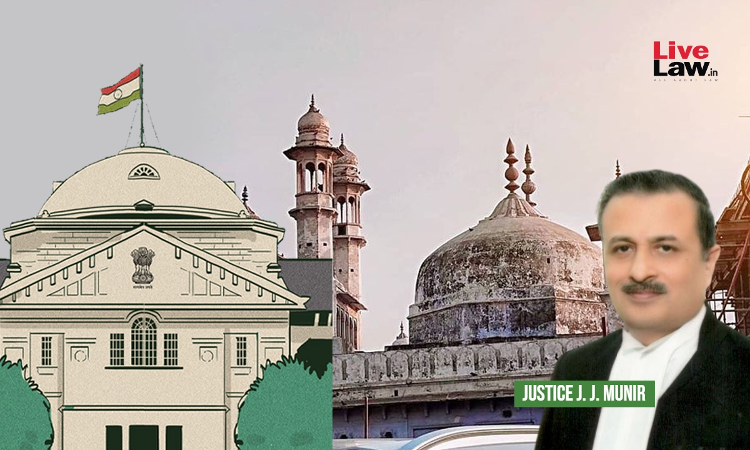- Home
- /
- News Updates
- /
- Gyanvapi | Challenge To...
Gyanvapi | Challenge To Maintainability Of Hindu Worhsippers' Suit: Mosque Committee Concludes Argument In Allahabad HC
Sparsh Upadhyay
30 Nov 2022 7:14 PM IST
The Anjuman Intazamia Mosque Committee (which manages the Gyanvapi Mosque in Varanasi) today concluded its argument in its revision plea moved before Allahabad High Court challenging a Varanasi Court order (of September 12, 2022) dismissing its Order 7 Rule 11 CPC plea that was filed against the maintainability of Hindu Worshippers' suit.Before the matter was adjourned for further hearing...
Tags
Anjuman Islamia Mosque CommitteeAnjuman Intazamia MasazidJustice J. J. MunirJustice Jahangir Jamshed MunirGyanvapiGyanvapi CaseGyanvapi MosqueGyanvapi DisputeGyanvapi Mosque CaseGyanvapi Masjid Case#GyanvapiGyanvapi Mosque DisputeGyanvapi mosque complexGyanvapi Mosque-Kashi Vishwanath Temple dispute#Gyanvapi Mosque.kashi gyanvapi mosque DisputeKashi Vishwanath temple-Gyanvapi mosqueKashi Vishwanath-Gyanvapi Mosque disputeKashi Vishwanath temple-Gyanvapi mosque disputeKashi Vishwanath Temple-Gyanvapi Mosque dispute caseKashi Vishwanath Temple-Gyanvapi Mosque complexMosque CommitteeGyanvapi Mosque commiteeOrder 7 Rule 11 CPCOrder 7 Rule 11 of CPC#Order 7 Rule 11 of CPC
Next Story



